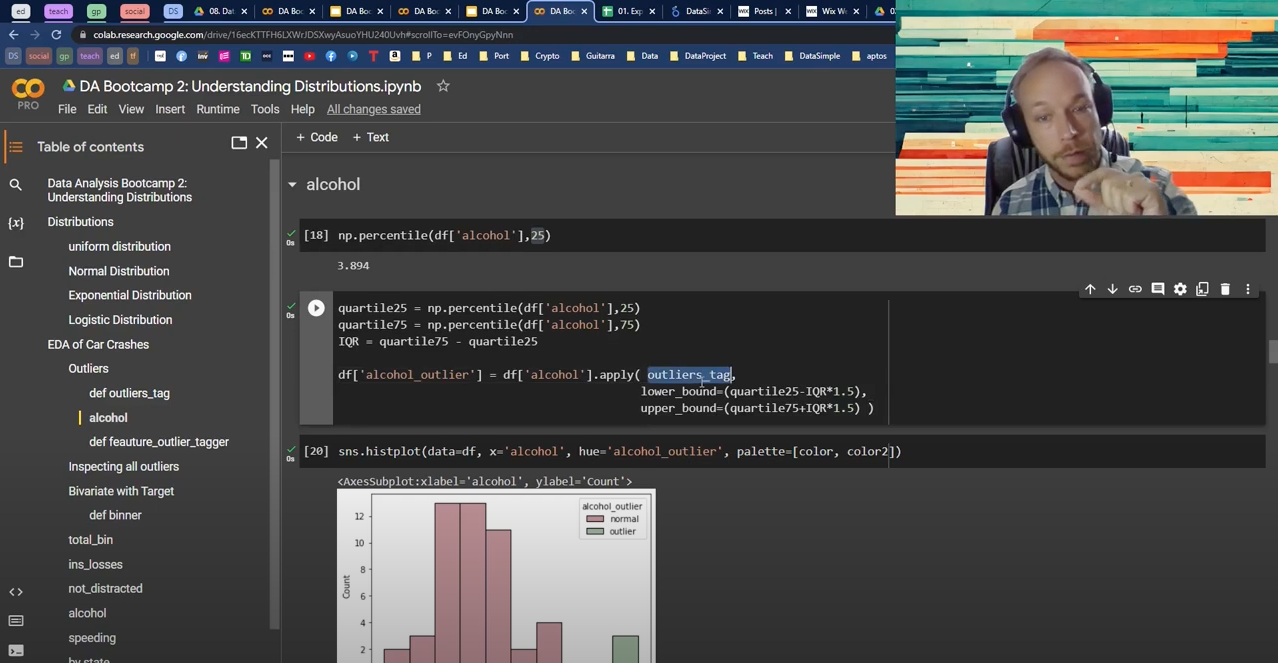5 min read
March 6, 2023
Data Analytics Definition and Overview for Everyone
Introduction
Data is all around us, and businesses and organizations of all sizes are collecting and analyzing it to make better decisions. Data analytics is examining and interpreting data to gain insights that can drive business decisions.
But data analytics is not just for large corporations with dedicated data teams. With the right skills and tools, anyone can become a data analyst and leverage data to make informed decisions.
Table of Contents:
What is Data Analytics?
Data analytics involves the collection, processing, and analysis of large amounts of data to uncover patterns, trends, and insights. This information is used to make better business decisions, improve processes, and identify opportunities for growth. In fact, it’s estimated that the world generates 2.5 quintillion bytes of data every day.
There are several types of data analytics, including descriptive, diagnostic, predictive, and prescriptive analytics. Each type involves a different level of analysis and is used for different purposes.
You might also like:
Warning: Undefined array key "title" in /home/amphyblogdev/domains/amphy-blog-dev.adcore.com/public_html/wp-content/themes/sentrysite-corporate/inc/courses-wi.php on line 29
Data analytics involves the collection, processing, and analysis of large amounts of data to uncover patterns, trends, and insights.
Applications of Data Analytics
Data analytics has numerous applications across industries. For example, retailers can use data analytics to better understand customer behavior and preferences and adjust their marketing and product offerings accordingly. Healthcare providers can use data analytics to improve patient outcomes and reduce costs by analyzing patient data and identifying potential health risks.
In the financial sector, data analytics can help banks and other financial institutions detect fraudulent activities and assess risk. Sports teams and organizations can use data analytics to analyze player performance and make data-driven decisions about strategy and game plans.
The applications of data analytics are limitless, and the need for skilled data analysts continues to grow across industries.
Why Learn Data Analytics?
Learning data analytics can lead to many opportunities for career advancement and personal growth. With the rise of big data and the increasing importance of data-driven decision-making, data analysts are in high demand across industries.
Learning data analytics can also provide the skills and knowledge needed to start your own freelance consulting business or even launch your own data analytics agency. With the right tools and expertise, you can help businesses make better decisions and achieve their goals.

How to Learn Data Analytics
Learning data analytics doesn’t necessarily require a degree in computer science or a background in math. Many online resources and courses are available that make learning data analytics accessible and easy to understand.
Amphy’s Data Analytics Bootcamp
One option for learning data analytics is Amphy’s Data Analytics Bootcamp. This bootcamp provides a comprehensive and approachable introduction to data analytics. The bootcamp is designed for beginners, and no prior experience is required.
During the bootcamp led by industry expert Brandyn Ewanek, you’ll learn the skills and techniques needed to succeed as a data analyst. The bootcamp covers topics such as data cleaning and preparation, statistical analysis, and data visualization. You’ll also have the opportunity to work on real-world data projects and receive personalized feedback and guidance from experienced instructors.
The bootcamp is taught online, so you can learn from anywhere in the world. The program is also flexible, with both part-time and full-time options available.

What Do Data Analysts Do?
Data analysts use a variety of tools and techniques to analyze data and generate insights. They may work with databases, spreadsheets, or specialized software to clean and prepare data for analysis.
Once the data is prepared, analysts use statistical techniques to identify patterns and trends, create visualizations to communicate insights and make recommendations to improve business decisions.
Data analysts may also work on predictive modeling, machine learning, and other advanced analytics.
You might also like:
Applications of Data Analytics
Data analytics has a broad range of applications across various industries. Below are a few examples of how data analytics is used in different fields:
- Marketing: Data analytics helps marketers understand customer behavior and preferences. This information allows marketers to personalize marketing messages and campaigns for maximum impact.
- Healthcare: Data analytics can be used to identify patterns and trends in patient health data. Healthcare providers can use this information to improve patient outcomes and reduce healthcare costs.
- Finance: Data analytics is used to analyze financial data and identify patterns and trends that can be used to make informed investment decisions.
- Sports: Data analytics is used in sports to identify player performance patterns and optimize strategies for winning games.
Amphy Data Analytics Bootcamp
If you’re interested in learning data analytics, Amphy offers a Data Analytics Bootcamp that can help you acquire the skills you need to succeed in this field. Our bootcamp is designed to be accessible to anyone, regardless of their background or prior experience with data analytics.
Our bootcamp covers a wide range of topics, including:
- Data analysis tools and techniques
- Data visualization
- Data cleaning and preparation
- Statistical analysis
- Machine learning
- Big data processing
The bootcamp is led by experienced instructors who have worked in the data analytics industry for years. They will provide you with hands-on training and support to help you develop your skills and build a portfolio of projects that you can use to showcase your expertise to potential employers. To book your place, simply send us an email at contact@amphy.com.

Commonly asked questions about data analysis
Is data analyst have good career?
Yes, data analysis is considered a good career choice in today’s job market. With the growing importance of data in businesses across industries, there is a high demand for skilled data analysts who can analyze and interpret data to provide insights and make informed business decisions. Additionally, data analyst roles often offer competitive salaries and opportunities for growth and advancement.
What qualifications do I need to be a data analyst?
To become a data analyst, it’s important to have a strong understanding of data analysis tools and techniques, as well as experience working with data in a professional or academic setting. A bachelor’s degree in a relevant field such as statistics, mathematics, computer science, or business is often helpful.
What skills does a data analyst have?
Data analysts need a combination of technical and soft skills to succeed in their roles. Technical skills include proficiency in data analysis tools such as Excel, SQL, and Python, as well as experience with statistical analysis and data visualization. Soft skills such as critical thinking, problem-solving, and communication are also important, as data analysts must be able to effectively communicate insights to stakeholders and collaborate with colleagues across departments. Additionally, a willingness to continuously learn and stay up-to-date with the latest trends and technologies in data analytics is important for success in this field.
Conclusion
Data analytics is a rapidly growing field that offers many opportunities for those who are interested in it. With the right skills and training, you can land a job as a data analyst, start your own data analytics agency, or work as a freelance data analyst.
If you’re interested in learning data analytics, consider signing up for Amphy’s Data Analytics Bootcamp. Our bootcamp is designed to be accessible to anyone and will provide you with the skills and knowledge you need to succeed in this exciting field. To book your place, simply send us an email at contact@amphy.com.
Meet Amphy
The largest marketplace for live
classes, connecting and enriching
humanity through knowledge.
Related Articles